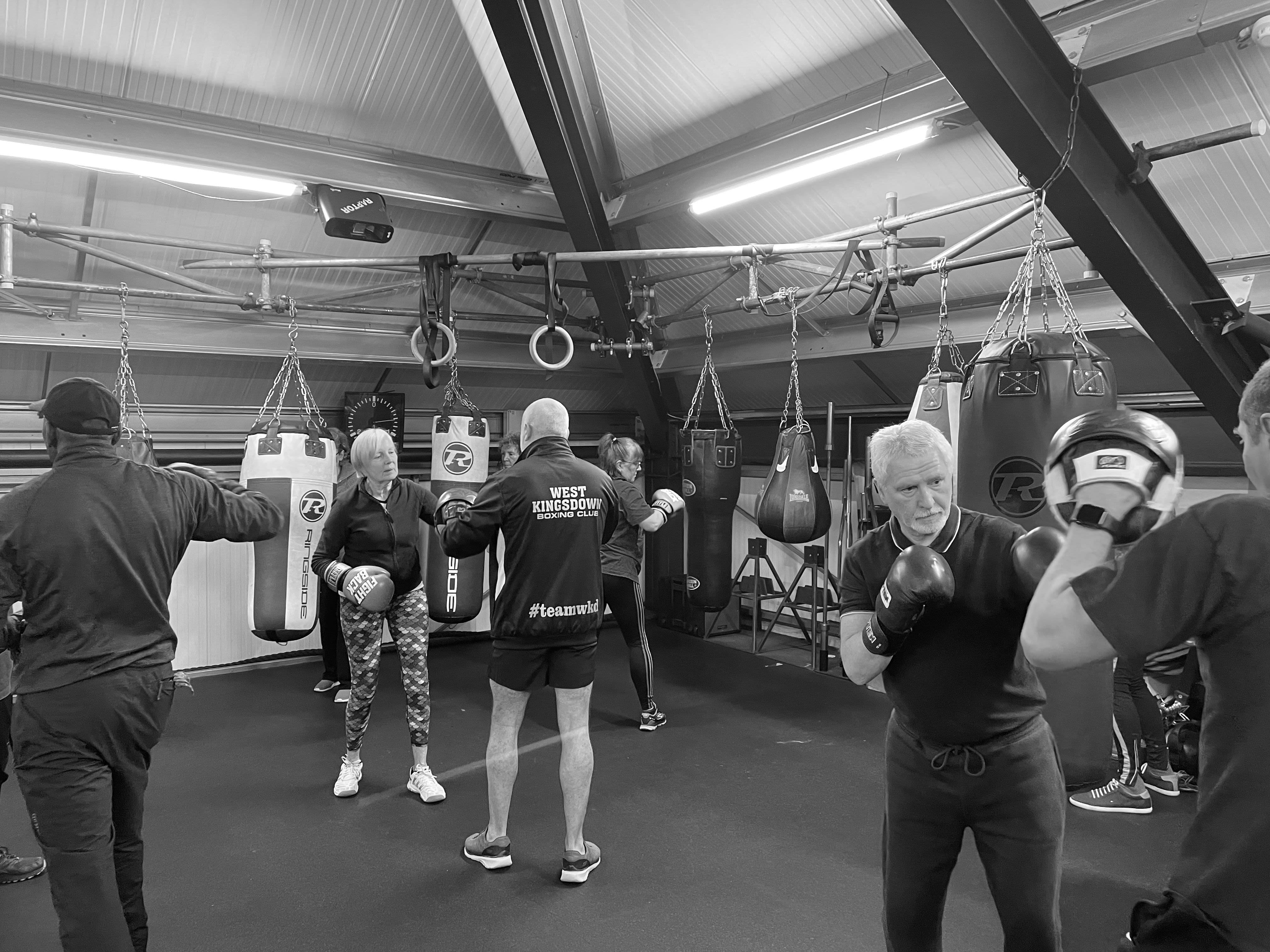
"Parkinson's tried to wipe the smile off my face."
How West Kingsdown Boxing Club in Kent are joining the fight against Parkinson's.
By Honor Dench
England Boxing and Parkinson’s UK are funding non-contact boxing classes for people living with Parkinson’s to regain better mobility and socialisation. The condition is not curable and is very individualistic, but being active for at least 2.5 hours a week, can make symptoms easier to live with.
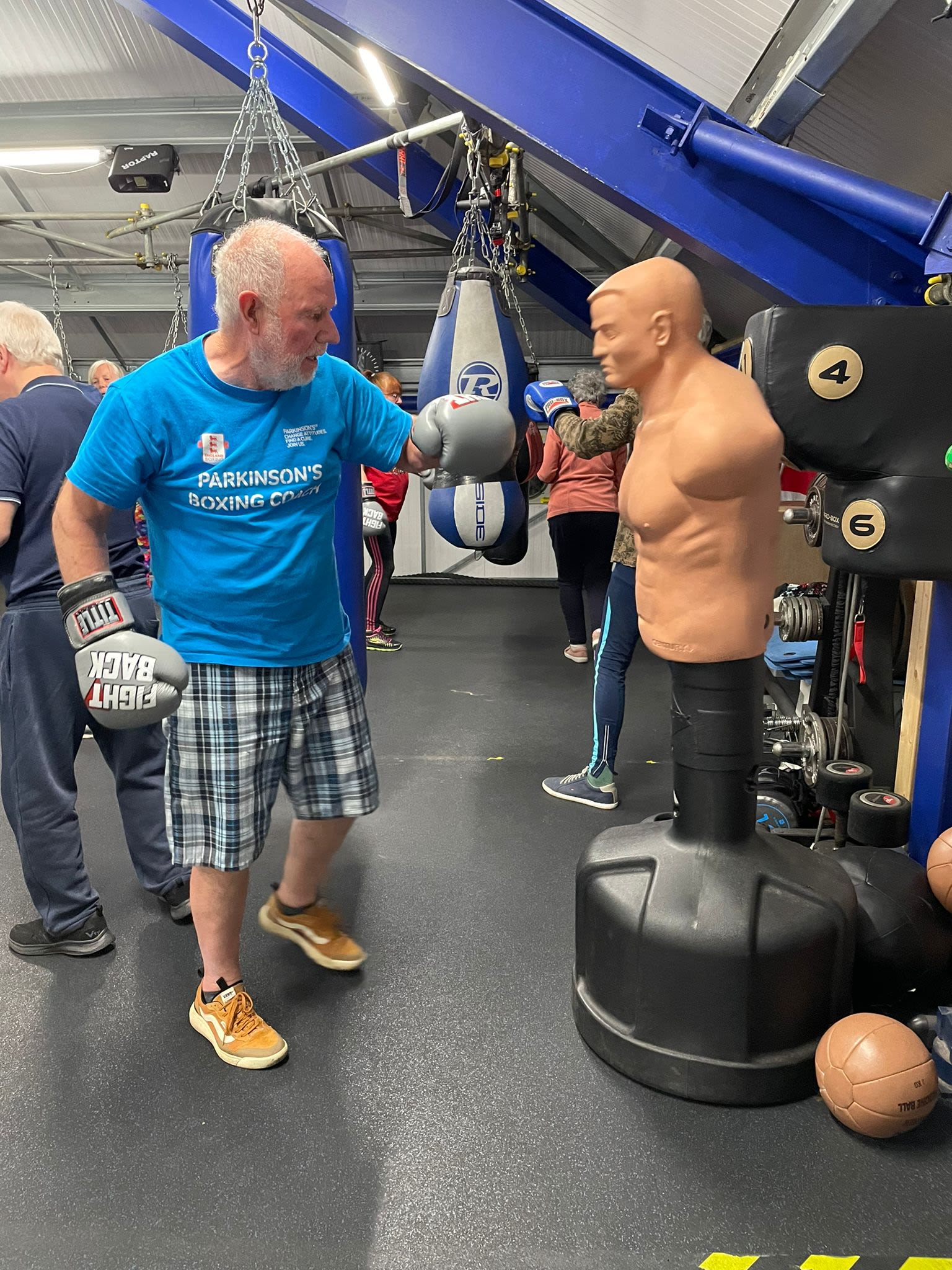
Action at West Kingsdown Boxing Club's Parkinson's sessions as one individual practices throwing punches on the punch bag.
Action at West Kingsdown Boxing Club's Parkinson's sessions as one individual practices throwing punches on the punch bag.
West Kingsdown Boxing Club host weekly Parkinson’s sessions, to improve mental and physical wellbeing. Boxing coach, Colin Neill, was introduced to the project through an England Boxing initiative, that provided training to become a boxing and Parkinson’s coach as well as insight on how important boxing is to people with the condition.
But how do these exercises benefit someone living with Parkinson’s? A 2021 study by the University of Missouri, found boxing programmes improve the balance in individuals with Parkinson’s, reducing fall risks. Parkinson’s UK say exercise alone improves bone and muscle strength.
People with Parkinson’s are heavily affected by muscle rigidity. The warm ups in the session will help with joint mobility, bone strength and improved flexibility. Colin concentrates a lot on the stretches, especially moving different joints. The stretching and exercise help those with Parkinson's stand up straighter.
“There are no complicated weights involved. Just putting the gloves on can be a challenge for someone with tremors. They’ll do a few rounds on the bags, and we'll take them out individually for pad work, giving them that one to one specialist treatment.”
Parkinson's targets mental health too. Chris Baines, a regular attendee of WKD Parkinson’s sessions said, “Parkinson’s often tries to wipe the smile off my face.” Scientifically, this is true, a common symptom is reduced facial expressivity. Parkinson’s UK state that almost half of suffers have faced anxiety or depression since their diagnosis.
I asked Colin if the classes have helped individuals deal with the mental health implications by boosting confidence levels.
“Absolutely, most of them have gained incredibly from the posture and the breathing, but it’s the confidence that makes a difference. Because of the condition, you end up being very isolated, especially the guys living alone. But in this environment, it's boxing and then it's Parkinson's. We have a chat, and you might say, well, 'what are you on, this? What do you do? Who tried that?' It’s an exchange of views and experiences, that helps each other.”
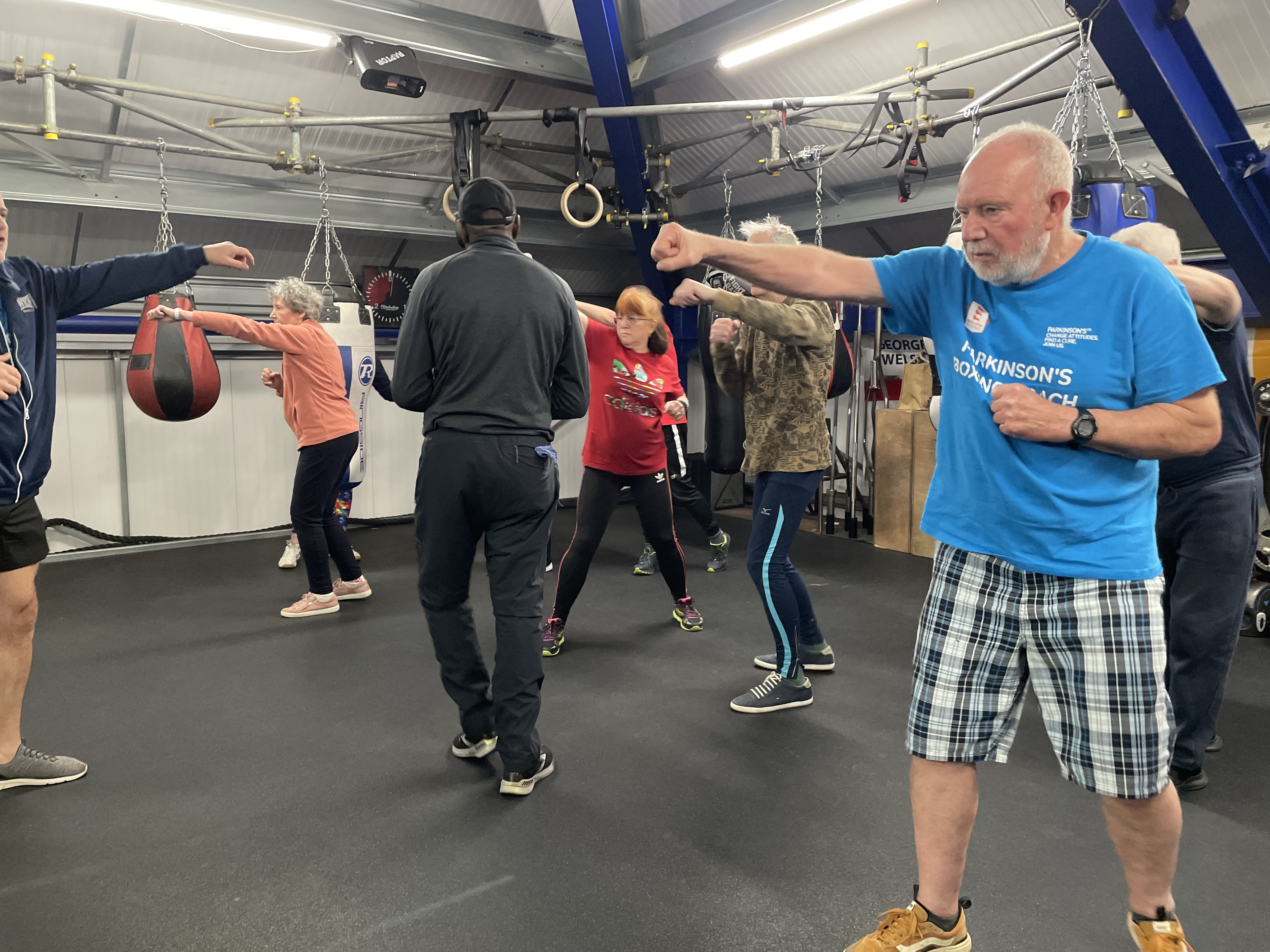
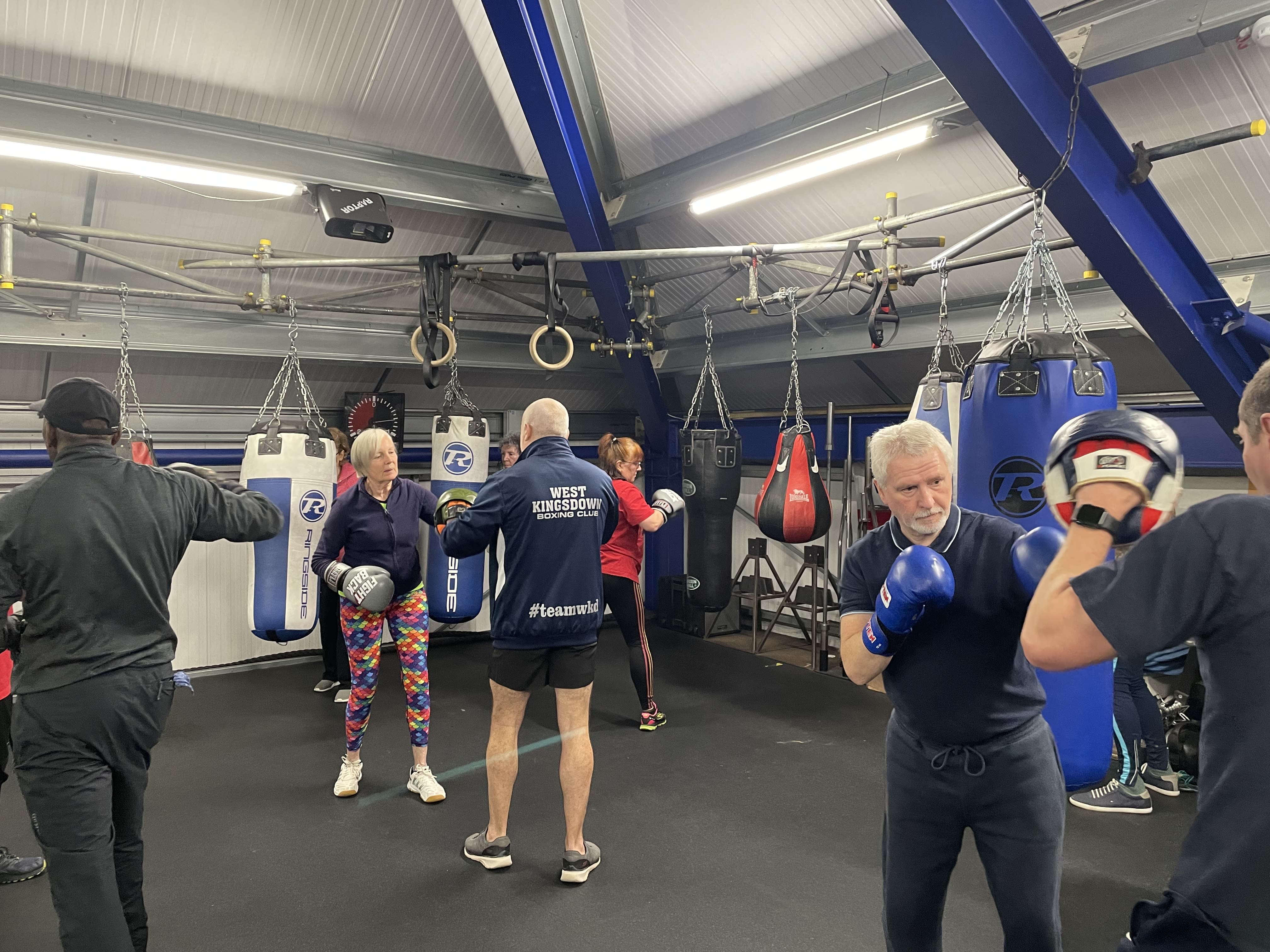
Those with Parkinson’s are often wary of socialising with others living with the condition, due to the fear of seeing where they may be in the years to come. Chris Baines has been fighting Parkinson’s for 11 years, and joining WKD Boxing Club is the first time he has been a member of a support group for Parkinson’s.
“I was always wary about meeting other people with Parkinson's. One of the things I was advised when diagnosed was that you look at the people around with Parkinson's, you join a group, you see that person who's had it for five years, and you think, I've had it for three. That's where I'll be in two years’ time. That's not necessarily the case. It’s given me confidence to be with other Parkinson’s sufferers and know it's very much an individual thing.”
Parkinson’s is one of few conditions where physical exercise can actually reduce symptoms and restore a sense of individuality. Chris feels the boxing is the best form of exercise he has tried in response to his Parkinson’s diagnosis.
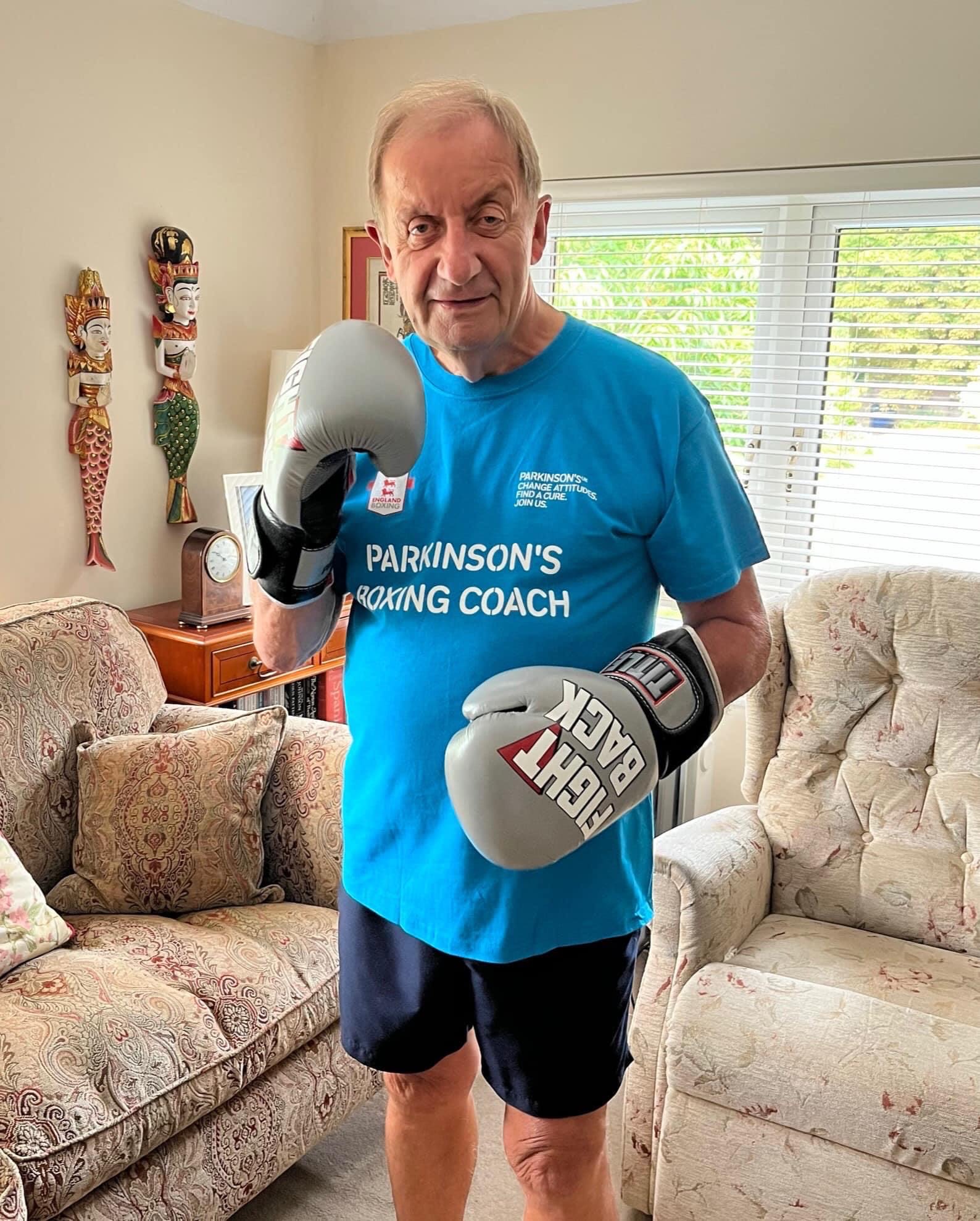
Chris Baines preparing to go to a Parkinson's session at WKD Boxing Club, he sports his 'fight back' boxing gloves.
Chris Baines preparing to go to a Parkinson's session at WKD Boxing Club, he sports his 'fight back' boxing gloves.
Family of those living with Parkinson’s can also be affected by a diagnosis, and many find themselves searching for groups their loved ones can join. Chris’s daughter, Angela, told us she’s noticed a huge change in her Dad, both physically and mentally. His confidence, stance and balance are all noticeably different.
“Parkinson’s sufferers have good and bad days, but my Dad can now recognise his own bad days, and does boxing at home to help, which he never would have done before. I know he was frightened of groups before, but I think he sees the benefits of talking about Parkinson’s with others and realises they are all fighting back together.”
Footage from a Parkinson's class shows coach Colin Neill working on individual pad work with a member of his group.
Footage from a Parkinson's class shows coach Colin Neill working on individual pad work with a member of his group.
With being the coach at such a successful club, I asked Colin what sense of achievement and fulfilment he receives being involved in such a rewarding project.
“It's immense. You can't put a finger on the amount of achievement and accomplishment you feel, for instance, one of the ladies said 'I’ve not been for a while, please don't give my place away, I’ve missed it.' And that gives you a real sense of purpose. You realise what you're doing with these people, and how much it means to them.”
Recently, the club were mentioned in Parliament during a discussion of Social Mobility and Boxing Clubs.
MP James Daly said “West Kingsdown amateur boxing club in Kent has, for the past year, been delivering sessions in partnership with Parkinson’s UK to help elderly people in the area to be more active, to slow the progression of the disease […] If the NHS were delivering that, we would be overjoyed and singing its praises. This is a boxing club.”
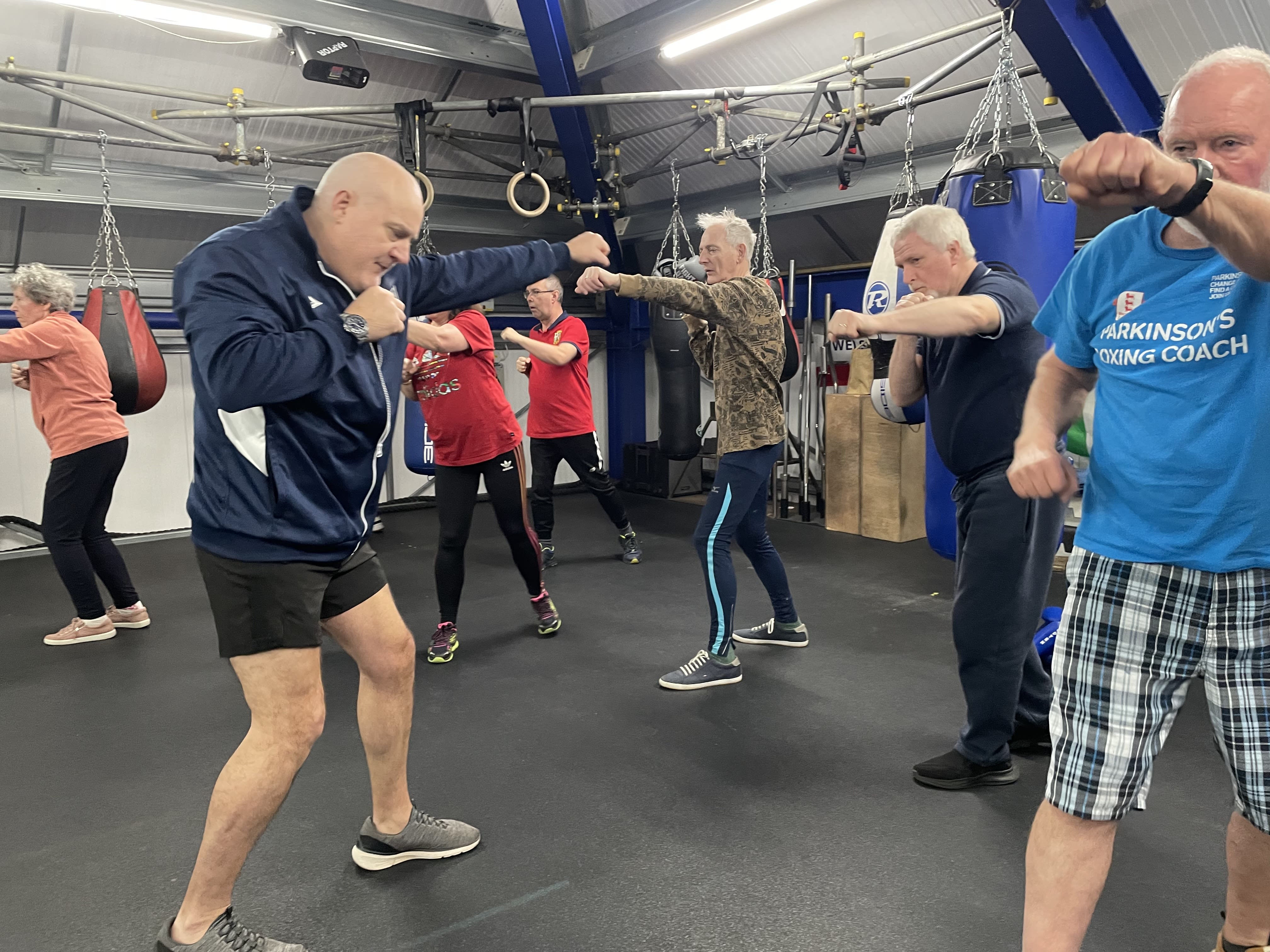
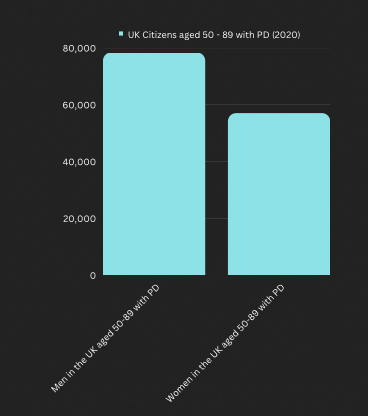
Graphic showing the ratio of men to women in the UK between the ages of 50 and 89 that currently suffer from Parkinson’s. Men, 78,326. Women, 56,990.
Graphic showing the ratio of men to women in the UK between the ages of 50 and 89 that currently suffer from Parkinson’s. Men, 78,326. Women, 56,990.
Parkinson’s mainly affects men over 50. Scientists have yet to discover the reason as to why it occurs but believe it to be a combination of genetic and environmental factors. At West Kingsdown, Colin told me that almost half the people attending the group are women.
“If anyone turns up, it doesn’t matter where they come from, We'll always find a space.”
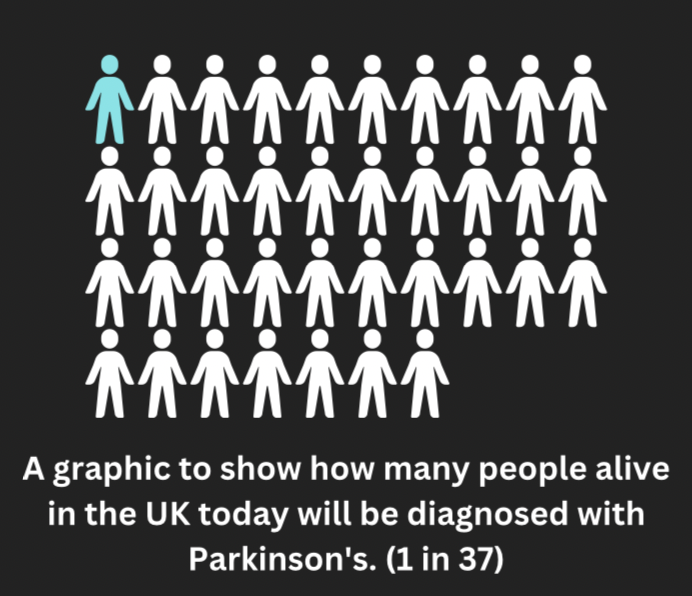
A graph to show how many people alive in the UK today will be diagnosed with Parkinson's in their life times - 1 in 37.
A graph to show how many people alive in the UK today will be diagnosed with Parkinson's in their life times - 1 in 37.
The funding for the Parkinson’s project comes from England Boxing, who initially funded one session a fortnight. Parkinson's UK then got involved, increasing it to one session a week. As of May, a second funding from England Boxing means the club can now offer two sessions a week.
Colin constantly seeks ways to improve the sessions, and WKD Boxing Club actively encourage those diagnosed to come and join in, despite fears, everyone is welcome in joining the fight against Parkinson’s.


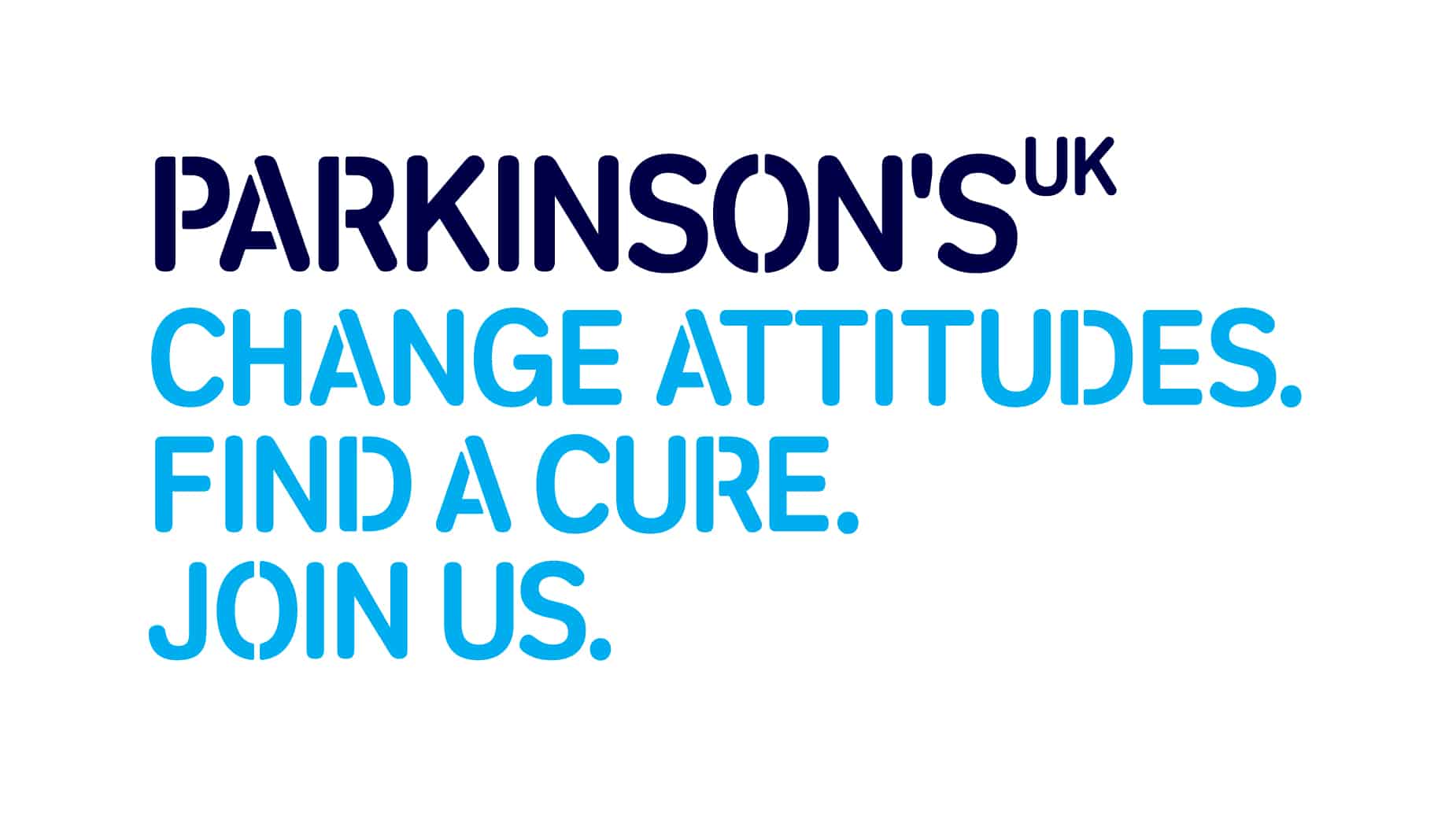
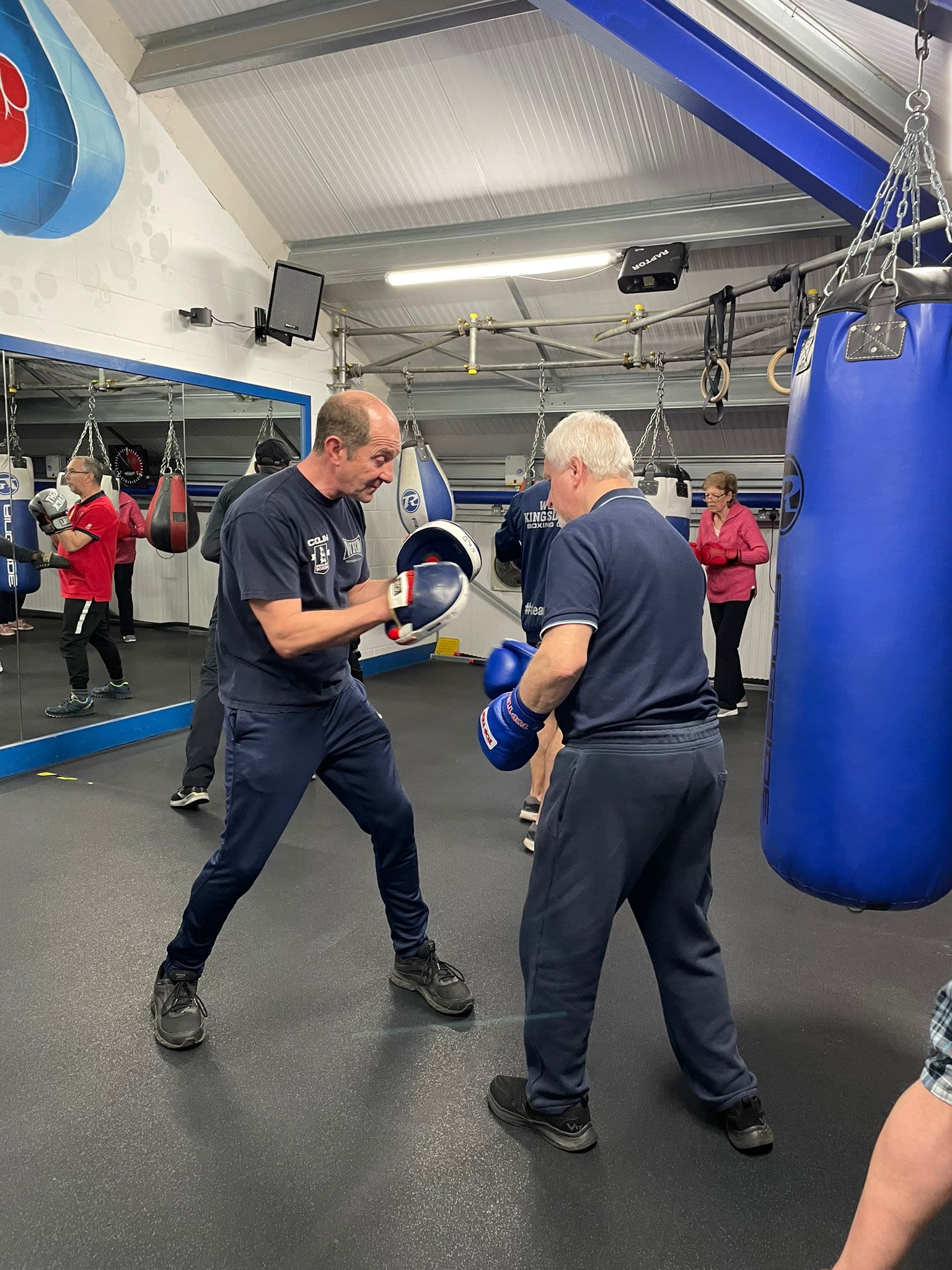
Boxing coach, Colin Neill, works with one member of the Parkinson's group on individual pad work.
Boxing coach, Colin Neill, works with one member of the Parkinson's group on individual pad work.
